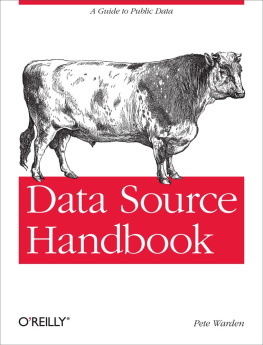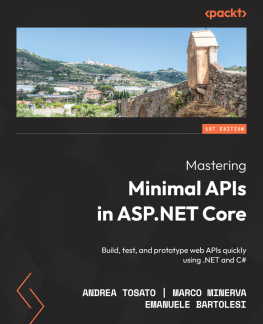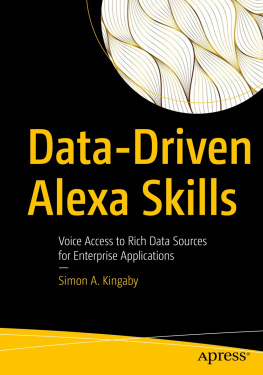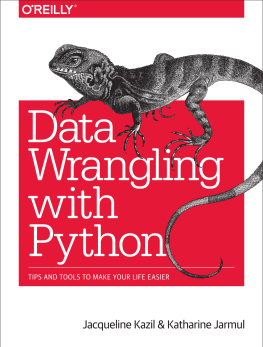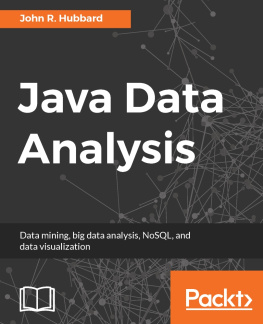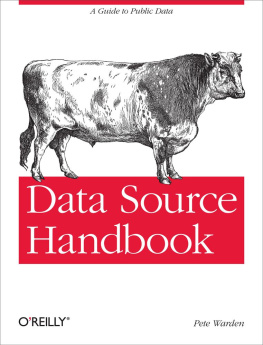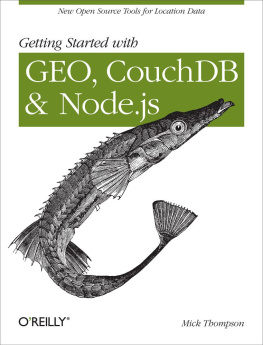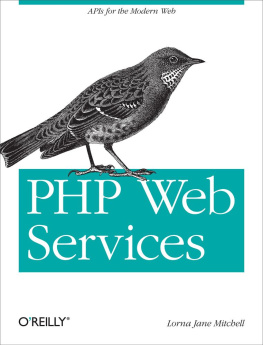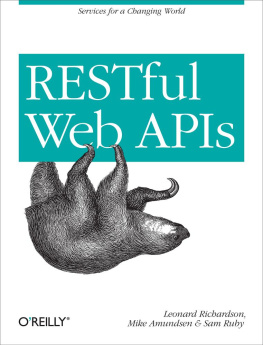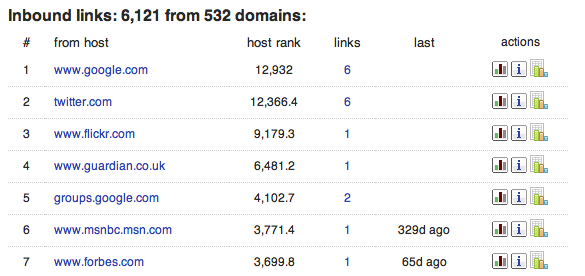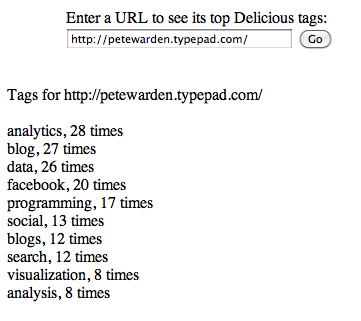Pete Warden - Data Source Handbook
Here you can read online Pete Warden - Data Source Handbook full text of the book (entire story) in english for free. Download pdf and epub, get meaning, cover and reviews about this ebook. year: 2011, publisher: OReilly Media, genre: Computer. Description of the work, (preface) as well as reviews are available. Best literature library LitArk.com created for fans of good reading and offers a wide selection of genres:
Romance novel
Science fiction
Adventure
Detective
Science
History
Home and family
Prose
Art
Politics
Computer
Non-fiction
Religion
Business
Children
Humor
Choose a favorite category and find really read worthwhile books. Enjoy immersion in the world of imagination, feel the emotions of the characters or learn something new for yourself, make an fascinating discovery.
- Book:Data Source Handbook
- Author:
- Publisher:OReilly Media
- Genre:
- Year:2011
- Rating:3 / 5
- Favourites:Add to favourites
- Your mark:
Data Source Handbook: summary, description and annotation
We offer to read an annotation, description, summary or preface (depends on what the author of the book "Data Source Handbook" wrote himself). If you haven't found the necessary information about the book — write in the comments, we will try to find it.
If youre a developer looking to supplement your own data tools and services, this concise book covers the most useful sources of public data available today. Youll find useful information on APIs that offer broad coverage, tie their data to the outside world, and are either accessible online or feature downloadable bulk data. Youll also find code and helpful links.
This guide organizes APIs by the subjects they coversuch as websites, people, or placesso you can quickly locate the best resources for augmenting the data you handle in your own service. Categories include:
- Website tools such as WHOIS, bit.ly, and Compete
- Services that use email addresses as search terms, including Github
- Finding information from just a name, with APIs such as WhitePages
- Services, such as Klout, for locating people with Facebook and Twitter accounts
- Search APIs, including BOSS and Wikipedia
- Geographical data sources, including SimpleGeo and U.S. Census
- Company information APIs, such as CrunchBase and ZoomInfo
- APIs that list IP addresses, such as MaxMind
- Services that list books, films, music, and products
Pete Warden: author's other books
Who wrote Data Source Handbook? Find out the surname, the name of the author of the book and a list of all author's works by series.

